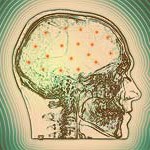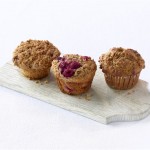How to Prevent Stroke
avoid stoke by maintaining proper weight, choledstoral and blood pressure levels. Eat healthydiet (fruits veggies, lots of fish (not fried – sardines are great) – go easy on the red meat to avoid fat. – excercise regularly, and reduce/ manage stress
auntie bea had ischemic stroke – blood clot type, not hemoragic stroke (bleeding in brain)
Omega-3 Fatty Acids
In a 2003 study, scientists discovered that eating fish several times per week reduces risk of thrombotic stroke (a type of ischemic stroke that occurs when a blood clot forms in arteries in the neck or brain). An earlier study also found that high consumption of fish and omega-3 fatty acids may be linked to decreased risk of thrombotic stroke.
Abundant in oily fish like salmon and sardines, omega-3 fatty acids are also available in supplement form.
Garlic may help prevent blood clotting and buildup of fatty deposits in the arteries, as well as curb high blood pressure.
Vitamin B3, also called niacin, is used to lower cholesterol. Specifically, it appears to lower LDL cholesterol and increase HDL cholesterol.
Well-designed studies have found that niacin lowers LDL cholesterol by approximately 10%, lowers triglycerides by 25%, and raises “good” HDL cholesterol by 15% to 30%. Niacin also appears to significantly lower levels for another risk factor for atherosclerosis, lipoprotein A.
Niacin is available in prescription form and as a dietary supplement. The American Heart Association cautions patients to only use the prescription form of niacin.
Because of side effects, niacin should not be used to lower cholesterol unless under the supervision of a qualified health practitioner.
Niacin can increase the effect of high blood pressure medication or cause nausea, indigestion, gas, diarrhea, gout, and worsen peptic ulcers, or trigger gout, liver inflammation, and high blood sugar.
The most common side effect of high-dose niacin is skin flushing or hot flashes, which is caused by widening of blood vessels. Most people only notice this when they initially start taking niacin. The flushing may be lessened by taking niacin with meals.
Although high doses of niacin showed promise in combination with drugs to lower cholesterol (called “statins“), there are concerns that combining them could result in a potentially fatal condition called rhabdomyolysis
Artichoke Leaf
There is some research suggesting that artichoke leaf extract (Cynara scolymnus) may help to lower cholesterol.
The upper or first number in a blood pressure reading is the systolic pressure and the lower or second number is called the diastolic pressure. According to National Heart, Lung, and Blood Institute guidelines:
- Normal blood pressure is below 120/80 mmHg.
- Prehypertension is systolic pressure that’s between 120 to 139 or diastolic pressure between 80 and 89.
- Stage 1 hypertension is systolic pressure between 140 to 159 or diastolic pressure between 90 and 99.
- Stage 2 hypertension is systolic pressure higher than 160 or diastolic pressure of 100 or higher.
Hawthorn
The herb hawthorn is often used by traditional herbal practitioners for high blood pressure.
In a randomized controlled trial conducted by researchers in Reading, UK, 79 patients with type 2 diabetes were randomized to receive either 1200 mg of hawthorn extract a day or placebo for 16 weeks. Medication for high blood pressure was used by 71% of the patients.
At the end of the 16 weeks, patients taking the hawthorn supplement had a significant reduction in mean diastolic blood pressure (2.6 mm Hg). No herb-drug interactions were reported.
-
Fish oil
Preliminary studies suggest that fish oil may have a modest effect on high blood pressure. Although fish oil supplements often contain both DHA (docohexaenoic acid) and EPA (eicosapentaenoic acid), there is some evidence that DHA is the ingredient that lowers high blood pressure. Learn more about fish oil.
-
Folic acid
Folate is a B vitamin necessary for formation of red blood cells. It may help to lower high blood pressure in some people, possibly by reducing elevated homocysteine levels.
One small study of 24 cigarette smokers found that four weeks of folic acid supplementation significantly lowered blood pressure. Learn more about folic acid.
-
Calcium, Magnesium, and Potassium
Calcium. Calcium supplementation appears to have a modest but statistically significiant reduction in systolic blood pressure (mean difference of 2.5 mm Hg), however better quality studies are needed. Learn more about getting enough calcium in your diet.
Potassium. A meta-analysis of five trials indicated that potassium supplementation compared to a control resulted in a large but statistically non-significant reduction in systolic blood pressure (mean difference 11.2 mm Hg) and diastolic blood pressure (5.0 mm hg). Learn about potassium in the diet and find out which foods have potassium.
Magnesium. In 12 randomized controlled trials, participants receiving magnesium supplements did not have a significantly reduction in systolic blood pressure, but they did have a statistically signicantly reduction in diastolic blood pressure (mean difference 2.2 mm Hg). Read more about magnesium in the diet.
drinking three cups of black or green tea per day reduced stroke risk by 21 percent. Sipping six or more cups daily may decrease stroke risk by an additional 21 percent, according to the review’s findings.
Coconut oil lowers cholesterol if it is high and raises it if it is too low. Coconut oil is unique in its ability to prevent weight-gain or cure obesity, by stimulating the metabolism. It is quickly metabolized, and functions in some ways as an antioxidant. Every study using natural, unprocessed coconut oil found a normalizing of cholesterol, blood sugar and blood pressure. This is also true of extra virgin olive oil, peanut oil and avocado oil.
Within a week, abnormal cortisol levels show improvement indicating adrenal restoration using vitamin B1, B complex and coconut milk. Patients seem more awake, their mood, energy and memory improves, and sleep becomes more normal.
Coconut oil is anti-viral, anti-bacterial and anti-fungal in the originating plant, in our gut and in our blood. Reducing seed oil consumption and using coconut milk or coconut oil as the dietary staple is reversing viral loads in HIV, eliminating all types of herpes virus and reducing or preventing other viral diseases including the yearly ‘flus’ and measles. The antiviral effect seems to be against lipid-enveloped viruses and is due to the presence of lauric acid in coconut oil.
Coconut has been shown to have some benefit for hypothyroidism, particularly the virgin coconut oil. Both the anti-viral and hypothyroid benefits may be due to coconut’s general immune system support.
In animal studies, feeding unprocessed coconut and coconut oils prevented tumor development, both malignant or benign.







Leave a Reply